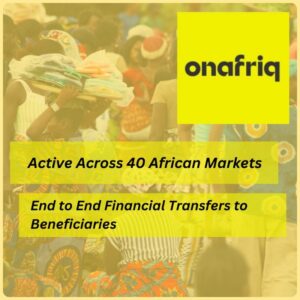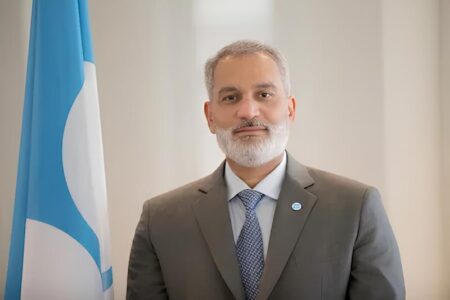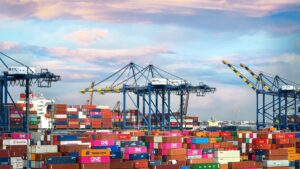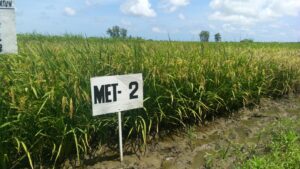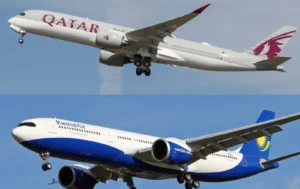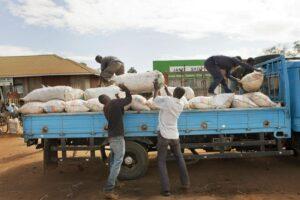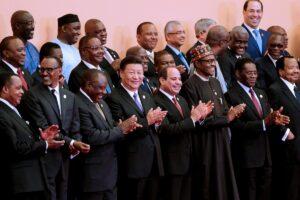- Africa’s new dawn: the rising role of digital and AI in agriculture
- Can Dangote Refinery Transform Africa Energy Ambition
- Gallup Survey: 80 per cent of Kenyan Workers Are Disengaged and Seek New Opportunities
- Madagascar Man Freed from 5KG Tumor After 15-Year Struggle
- How women in Africa are perceived and treated
- Sugar consumption in Kenya to Increase to 1.23 Million Tonnes
- Can Somalia and Turkey Oil deal Bring Change in Somaliland
- Remittances to Kenya dropped to $371.6 million in June, marking a six month low
Opinion
- Existing scientific research in Africa’s renewable energy transition often overlooks certain dispatchable technologies that could enhance grid flexibility.
- Studies primarily focus on zero-carbon dispatchable technologies like concentrated solar power and geothermal, despite their limitations in efficiency, reliability, and cost.
- Balancing engine power plants, which are globally recognized for their flexibility, reliability, and cost-effectiveness, are notably absent in these analyses, despite their potential to run on clean fuels in the future.
It is no longer disputed that solar and wind power will be the foundation of Africa’s future energy systems. They are perfectly suited to the continent’s unique conditions and are already the most cost-competitive power option in almost all cases. This consensus spans academia, businesses, and policymakers who all recognize the potential of renewable energy to meet Africa’s growing needs sustainably.
They also readily acknowledge the intermittent nature of renewables, and the associated need for flexible power capacity within the …
- Creating a “greater purpose” is essential to Onafriq’s corporate culture, driving its growth and unifying Africa’s digital payments.
- Onafriq’s digital payments network connects over 1,300 cross-border payment corridors and facilitates financial access for over 500 million mobile wallets and 200 million bank accounts in 40 markets in Africa.
- Overall, Onafriq empowers small businesses and women entrepreneurs by providing access to digital payment options, asset-based financing services, and additional income opportunities.
Being deliberate about creating a “greater purpose” is essential to building an authentic corporate culture, engaging stakeholders, and navigating the evolving landscape of corporate philanthropy. This is the philosophy behind Africa’s largest digital payments network, Onafriq’s, extensive growth and vision to unify the continent’s digital payments landscape according to its General Counsel and Chief Risk Officer Funmi Dele-Giwa.
Dele-Giwa recently shared insights into the organisation’s unique position at the intersection of social impact and commercial ambition at the Women in …
- The momentum of financial inclusion programmes is progressively strengthened as financial institutions, businesses and consumers embrace cashless convenience and digital payments that are secure and seamless.
- Currently, Rwanda is a prime market for digital payments, with a young population of which 69 per cent is below the age of 30, and the second-highest population density in Africa
The momentum of financial inclusion programmes is progressively strengthened as financial institutions, businesses and consumers embrace cashless convenience and digital payments that are secure and seamless. Technology development broadens the scope of delivery of financial services, and the advantages of digital payments manifest in providing easy access to the masses, reducing travel and queuing times, quicker transactions and seamless money movements that are cashless.
Currently, Rwanda is a prime market for digital payments, with a young population of which 69 per cent is below the age of 30, and the second-highest population density …
- One of the most important ways a fintech can listen to its customers is to gauge how they engage with its products.
- Having a deep understanding of customer needs results in innovative solutions.
All around the world businesses are pulling out the stops to achieve growth in what can best be described as challenging economic conditions. Africa is no exception. The continent has long been recognised for its immense potential, and as such businesses across sectors are investing heavily into the continent.
Advancements in technology make serving the unbanked and underserved populations in Africa more viable than ever before. However, that does not mean growth comes easily. It is a hyper competitive and complex environment where genuinely understanding your customer is key to growth.
Even with this textbook understanding, there is a strong urge to take the “build it and they will come” approach because we can get caught up …
- Namibia is fortunate to benefit from the experiences of other oil- and gas-producing states.
- The country’s oil and gas sector is still looking forward to reaching the production phase, but S&P Global analysts don’t anticipate Namibia’s first oil production will come until 2029.
- Further, the country’s first gas-to-power project is scheduled to begin in 2027.
Namibia’s energy sector is still looking forward to reaching the production phase — S&P Global analysts don’t anticipate Namibia’s first oil to come until 2029, and the country’s first gas-to-power project is scheduled to begin in 2027.
Ohio State Team Jersey
ohio state jersey
Ohio State Team Jersey
asu jersey
ohio state jersey
Iowa State Football Uniforms
detroit lions jersey
micah parsons jersey
micah parsons jersey
Iowa State Football Uniforms
fsu football jersey
OSU Jerseys
custom football jerseys
asu jersey
Before Namibia achieves these hotly anticipated milestones, Namibian lawmakers can implement thoughtful, …
- President Hage Geingob was truly an African giant, but one whom far too many people didn’t know about.
- Namibia has President Geingob to thank for its rapidly developing green hydrogen sector, which will lead to even more jobs, business opportunities, and access to electricity for Namibians.
- The late Geingob’s visionary leadership, integrity, and his wise approach to building Namibia’s hydrocarbon and renewable energy sectors was outstanding.
On Monday morning, February 4, many of us woke to the news of the tragic passing of Namibian President Hage Geingob.
The death of this great man and remarkable leader is a tremendous lsac à dos eastpak jordan proto max 720 yeezy boost 350 v2 hyperspace yeezy shoes under 1000 inflatable kayak sit top kayak custom kings jersey nike air max 90 futura sac à dos eastpak deuce vaughn jersey nike air max 90 futura 8 ft kayak kansas city chiefs crocs nike …
- In Africa, just like elsewhere, energy-intensive businesses are under great pressure to decrease CO2 emissions.
- Wärtsilä Energy knows more about this than most: many of our mining and industrial partners in Africa operate their microgrids, either from choice or necessity.
- While wind and solar power can offer emission-free energy at lower costs than fossil fuels, their intermittent nature adds uncertainty to the system.
In African countries, particularly those with a well-developed industrial sector, a significant portion of energy production may come from the industry’s own power plants.
This is especially true in countries with low grid reliability, and industries rely on self-generated power to ensure a stable energy supply.
In this article, we offer insights into Wärtsilä Energy’s approach to supporting energy-intensive industries to optimise the use of renewable energy and reach their decarbonisation objectives.
In Africa, just like elsewhere, energy-intensive businesses are under great pressure to decrease CO2 emissions …
- Food security is increasingly under threat as extreme weather events, shifting agro-ecological zones and changes in rainfall patterns accelerate the risk of food insecurity.
- In response to the challenges posed by climate change, various adaptation measures have been identified and implemented.
- These aim to improve livelihoods and enhance food security while mitigating the impact of climate change.
Climate change is an undeniable reality, and its consequences have far-reaching effects on various sectors, particularly agriculture and food security. RSK Tanzania Senior Social Consultant Geofrey Mutayoba says developing countries are particularly vulnerable to the impacts of climate change, as their economies heavily rely on agriculture. However, innovative adaptation measures are being introduced that are yielding benefits that go beyond climate resilience.
Food security is increasingly under threat as extreme weather events, shifting agro-ecological zones and changes in rainfall patterns accelerate the risk of food insecurity. Developing countries face significant challenges in providing …
- AI allows photographers to transform their photos with just a few adjustments, enhancing colours, recovering details, and creating vibrant images that truly capture the magic of the moment.
- AI-powered editing tools excel in removing unwanted elements, sharpening details, and reducing image noise, making them invaluable aids in producing impeccable photographs.
From the emergence of text-based diffusion models that can bring images to life with just a description, to the remarkable capabilities of advanced artificial intelligence (AI) image generators, the boundaries of what we can achieve in photography are expanding like never before.
Just few years ago, a professional photographer would spend more time on the photo editing process than on the photoshoot itself. Hours and hours were spent behind a computer, ensuring that each image reflected the essence of what the photographer intended. The colours, the focus, the details – all these elements took time to perfect.






